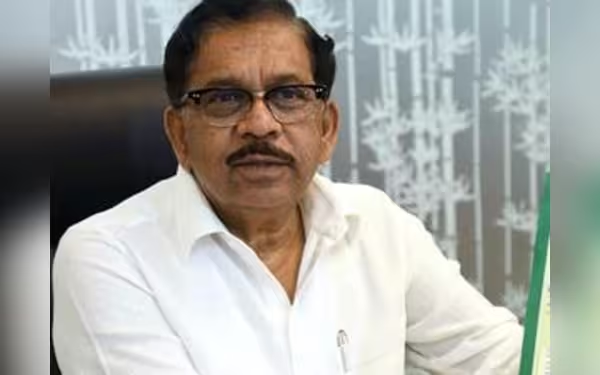Thursday, November 7, 2024 12:57 PM
Karnataka Home Minister Advocates Discussion on Caste Census Report
- Home Minister stresses transparency in caste census report.
- Rs 160 crores invested in conducting the caste census.
- Government aims to address community concerns through dialogue.
 Image Credits: menafn
Image Credits: menafnKarnataka's Home Minister emphasizes the need for public discussion on the caste census report before its release, highlighting transparency and community concerns.
The caste census in India has been a topic of significant discussion and debate, particularly in states like Karnataka. This census aims to gather data on the various castes within the state, which can help in understanding the social and economic conditions of different communities. Recently, Karnataka's Home Minister, G. Parameshwara, emphasized the importance of discussing the caste census report thoroughly before it is made public. He believes that transparency is crucial, stating, "The public has the right to know what is in the caste census report." This statement highlights the need for open dialogue regarding the findings of the census.
Parameshwara pointed out that a substantial amount of Rs 160 crores has been invested in conducting the caste census. He expressed concern that if the report is not shared with the public, this significant expenditure would be wasted. He further stated, "People have a right to know what is in the report," indicating that the information gathered is not just for administrative purposes but should also serve the interests of the citizens.
While discussing the caste census, the Home Minister also touched upon the sensitive issue of reservations for various communities, particularly the Panchamasali Lingayats in the 2A Category. He assured that the state government, under Chief Minister Siddaramaiah, is capable of addressing these complex issues. Parameshwara mentioned, "We will have discussions and make decisions on how to address the concerns of various communities," which suggests a collaborative approach to governance.
Moreover, he highlighted a legal directive that reservations should not exceed 50 percent. However, he acknowledged that some states, like Tamil Nadu, have surpassed this limit, implementing a 69 percent reservation by amending the Constitution. This raises questions about the balance between providing adequate representation for all communities and adhering to legal frameworks.
The caste census report is not merely a document; it represents the voices and concerns of various communities in Karnataka. The Home Minister's insistence on discussing the report before its public release underscores the importance of transparency and accountability in governance. As the state prepares to present the findings to the Cabinet, it is essential for all stakeholders to engage in constructive dialogue. This will not only help in addressing the needs of different communities but also foster trust between the government and the public. Ultimately, the successful implementation of the caste census can pave the way for more informed policies that benefit all sections of society.













